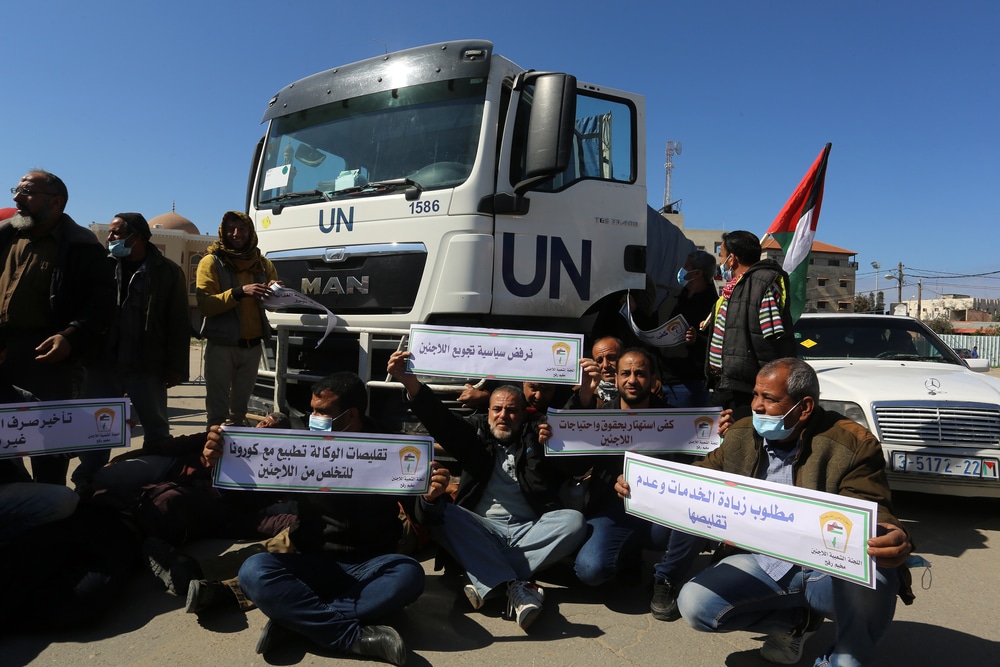Musa Abu Marzouk Controversial Directive Sparks Outrage
In a startling revelation, Musa Abu Marzouk, a senior leader of Hamas, has ignited a firestorm of controversy with his recent remarks regarding aid distribution in Gaza. According to a tweet, Musa reckons that the humanitarian aid for Gaza must initially go to the resistance fighters while the surplus is allocated to the people.
The directive, which effectively advocates for terrorists to eat first, has triggered outrage domestically and internationally. Critics argue that such a stance not only undermines humanitarian principles but also exacerbates the suffering of the Palestinian people, who are already grappling with dire socio-economic conditions exacerbated by years of conflict.
Hamas is Not a Terrorist Group – UN Relief Chief
Meanwhile, the UN Relief Chief, Martin Griffiths, has ignited controversy after asserting that Hamas, the militant group governing the Gaza Strip, should not be considered a terrorist organization. Griffiths’ remarks have triggered a heated debate over the classification of Hamas and the role of the United Nations in the Israel-Hamas conflict.
Griffiths further said that the UN doesn’t classify Hamas as a terrorist group. Instead, it recognizes it as a political movement. He also highlighted the importance of addressing the goals of such organizations through diplomatic means, expressing skepticism about the efficacy of military actions.
Despite acknowledging the distress caused by the October 7, 2023 attack, Griffiths emphasized the importance of Israel fostering relationships with its neighbors in addressing the root causes of the conflict. Griffiths expressed dismay over the inability of civilians to escape the conflict zone, painting a dire picture of the humanitarian crisis in Gaza.
Israeli Officials Slam UN Relief Chief’s Comments
Griffiths’ remarks have also drawn a swift rebuke from Israeli government officials, including Government Spokesman Elyon Levy, who denounced the UN Relief Chief’s statements as an abuse of power. Levy took to social media platform X to criticize Griffiths, accusing him of prioritizing the interests of Hamas over demanding accountability for terrorist actions.
Israel’s official X account echoed similar sentiments, condemning Griffiths’ characterization of Hamas as a political organization and criticizing the UN for whitewashing terrorism. Griffiths’ comments have caused many to worry about the UN’s biased role in the Israel-Hamas conflict and its views on terrorism.
In his remarks, Israel’s Ambassador to the UN, Gilad Erdan, criticized the UN, saying it supports Hamas and blames the victims. Critics agree with Erdan, saying the UN has lost its fairness and honesty in dealing with Middle East conflicts. This controversy has led to renewed calls for the UN to be more accountable and transparent.
UN Faces Criticism For Disproportionate Focus On Israel
In a year marked by turmoil and tragedy, the United Nations General Assembly received huge criticisms for its handling of resolutions targeting Israel, with many concerned about the organization’s double standards. The year 2023 witnessed a tragic milestone in Israel’s history as it grappled with the deadliest attack in its history of existence.
Surprisingly, the UN General Assembly passed a total of 14 resolutions, singling out Israel for condemnation in most of it. This figure contrasts the mere seven resolutions addressing the rest of the world combined.
Notably, the resolutions targeting Israel outnumbered those directed at notoriously oppressive regimes, including North Korea, Iran, Syria, and Myanmar. North Korea, infamous for its extensive network of gulags and severe human rights abuses, received only one resolution.
Similarly, Iran, long criticized for its human rights violations and role as a state sponsor of terrorism, also garnered one resolution. Furthermore, the UN issued one resolution against Syria, plagued by a devastating civil war resulting in hundreds of thousands of deaths and the use of chemical weapons.
Also, Myanmar, where security forces have been accused of mass killings and rapes, received only one resolution. The disproportionate focus on Israel has reignited debates surrounding the fairness and effectiveness of the UN’s approach to addressing global conflicts and human rights abuses. Critics argue that such disparities undermine the credibility and impartiality of the international body.

